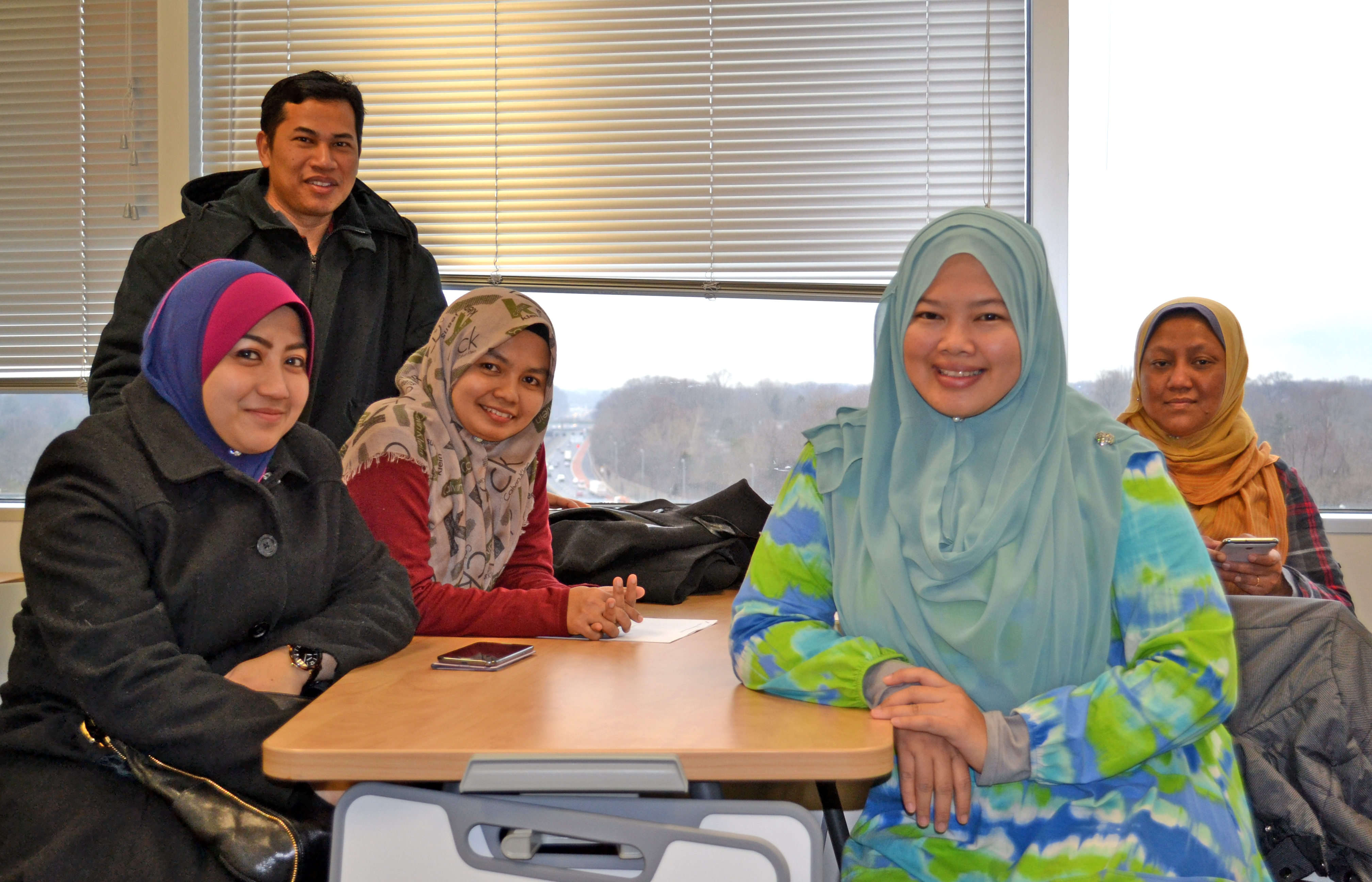Language program helps Malaysian teachers speak better English in their classrooms

Nolie Binti Shamshudin, a math teacher taking part in a Virginia Tech Language and Culture Institute program, expected to improve her English and learn to better integrate technology into her classroom in Malaysia. Among the skills she did not expect to pick up: throwing a snowball and making snow angels.
More accustomed to the tropical greenery of Southeast Asia, she found herself knee-deep in the wintry weather of the National Capital Region, where Virginia Tech's facilities include a learning center in Fairfax.
Malaysia's Indigenous People's Trust Council, known as MARA, selected Shamshudin and 19 other high school math and science teachers from rural Malaysia to participate in the two-month teacher-training program. The program blends English language instruction and training in 21st-century teaching methodology and practice.
"The program has given the institute a chance to pilot a successful teacher-training program that can be easily adapted for use with teachers from other countries," says Andrea Todd, director of Northern Virginia operations for the Language and Culture Institute, who developed the program.
"My confidence and self-esteem have already improved, and now English is not a barrier for me," says chemistry teacher Norbaizura Binti Mahat. Being better able to understand the language also helps her keep up-to-date on scientific research, she says. Teachers seek improved language skills so that they will be better equipped to teach their subjects in English, the program's participants said.
They take part in the institute’s Intensive English Program – a program also available in Blacksburg and Radford – where they hone their listening, speaking, reading, writing, and pronunciation skills. They also study teaching methodology and theory. Serena Gould, who leads the teacher-training classes, says her class is "like an action research project that helps the participants re-evaluate their situation as teachers, reflect on their teaching practice, and see where they are going."
To integrate technology into the classroom, participants practice skills such as setting up wikis, making and editing collaborative documents, building and using online surveys, and sharing content-specific websites for math and science classes.
Outside of the classroom, the participants observed American teachers at four Northern Virginia high schools.
Azham Bin Poharan, a math teacher, says he especially enjoyed a daylong visit to Flint Hill School in Oakton, Virginia. He saw similarities with his math classes in Malaysia, such as "medium-sized classes – not small and not big." He says he was particularly interested in how teachers at the private school use smart boards in their classrooms.
The Malaysian teachers stay with American families in the area, giving them even more opportunities to practice their English and learn about U.S. culture. Shamshudin says that her hosts, after showing her how to make snowballs and snow angels, introduced her to hot cocoa with marshmallows.
Dedicated to its motto, Ut Prosim (That I May Serve), Virginia Tech takes a hands-on, engaging approach to education, preparing scholars to be leaders in their fields and communities. As the commonwealth’s most comprehensive university and its leading research institution, Virginia Tech offers 240 undergraduate and graduate degree programs to more than 31,000 students and manages a research portfolio of $513 million. The university fulfills its land-grant mission of transforming knowledge to practice through technological leadership and by fueling economic growth and job creation locally, regionally, and across Virginia.
Written by Christine Bobal and Rich Mathieson








